Playing cards from Suriname
Playing cards reflecting the history and culture of Suriname, on the northeastern coast of South America.
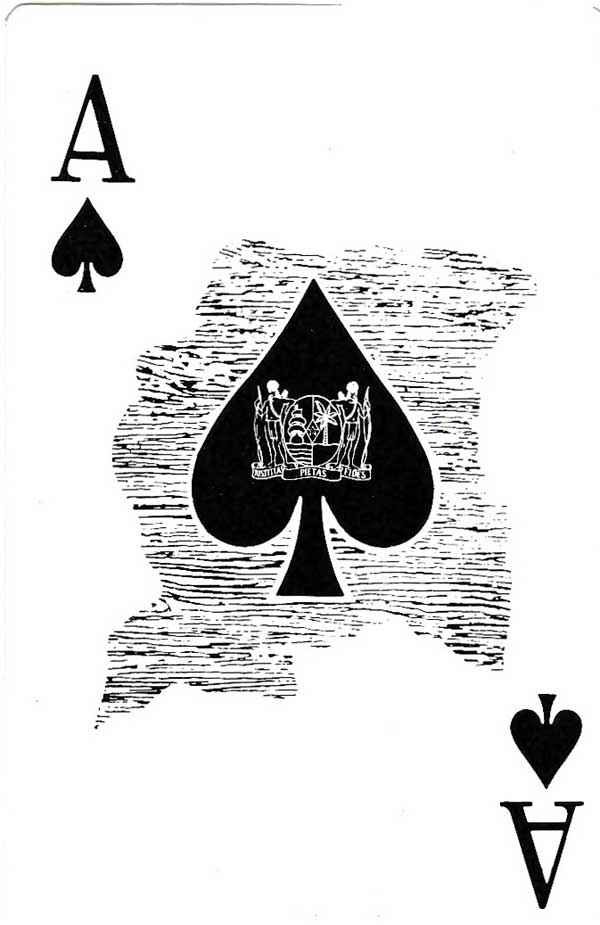
A very attractive pack of 54 cards reflecting the history and culture of Suriname. The court cards of the four suits portray the different cultures that now populate the country. The Diamond suit represent the Amerindians – the oldest inhabitants of the country; the Spades portray African negroes brought to Suriname as slaves, who were the ancestors of the Saramacca (formerly called "Bush Negroes"); Clubs depict the contract workers from India who were brought over to meet the shortage of labourers after the abolition of slavery; and the Hearts portray the Javanese who came from Indonesia to Suriname, adding one further element to the diversity of local cultures.
The court cards also incorporate aspects of culture, such as dress, musical instruments, and rituals. The reverse of the cards shows a stylized version of woodcarving of the Saramacca tribe and the ace of spades shows the coat-of-arms inside a spade symbol, superimposed upon a rough outline of the country. More detailed information is provided in an accompanying leaflet, written in English and Dutch (see below).
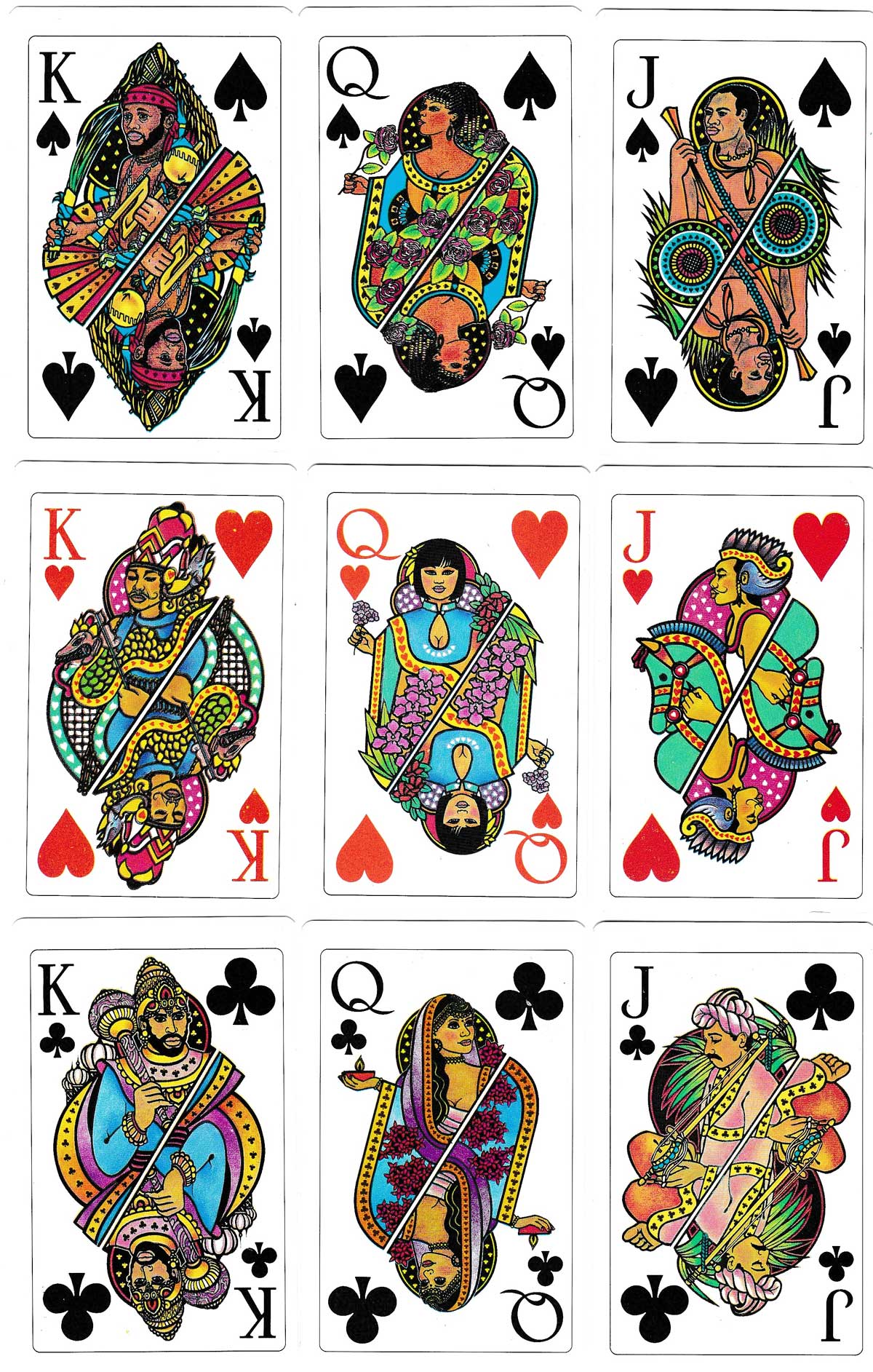
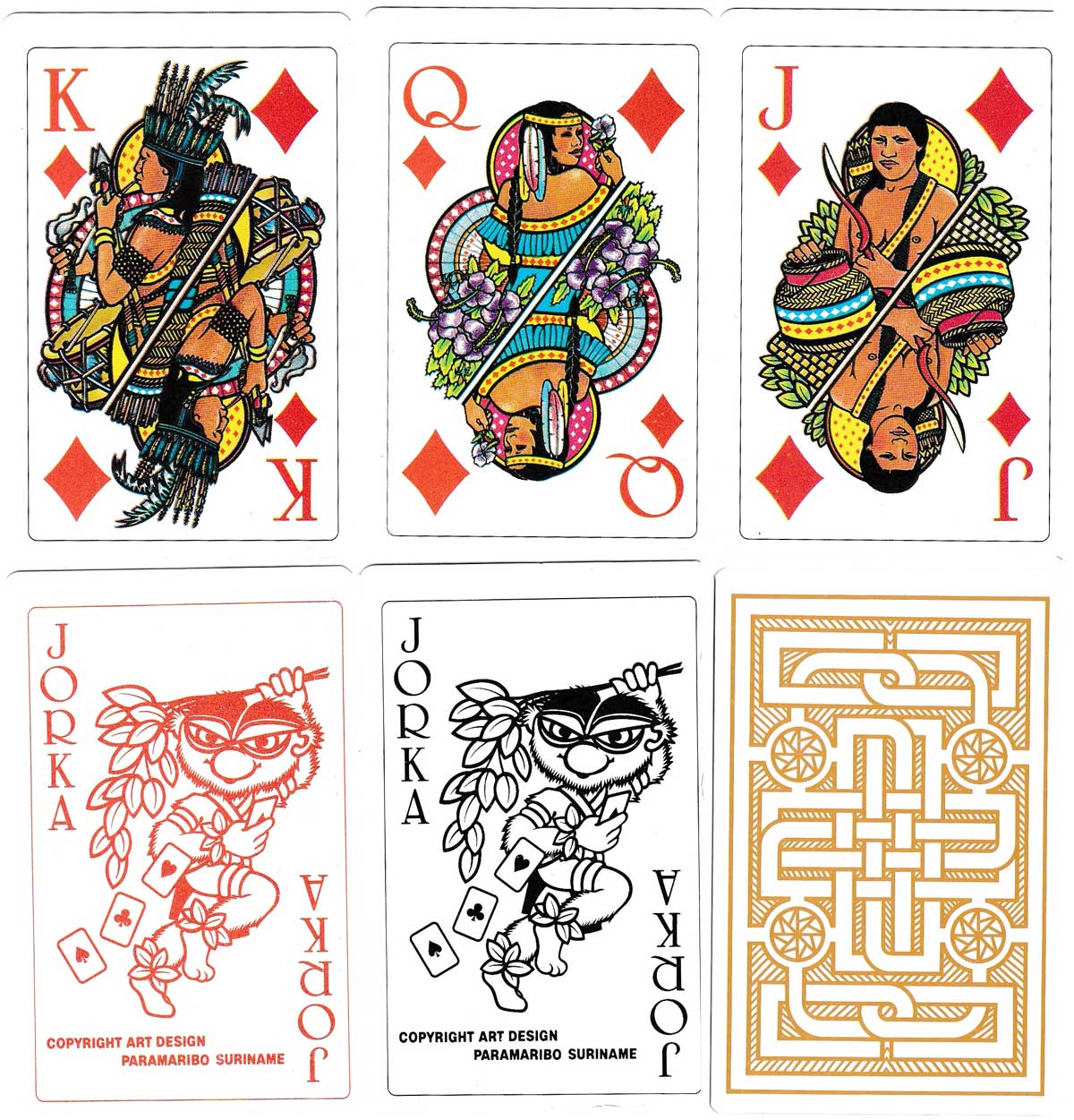
Above: Playing cards reflecting the history and culture of Suriname, designed by Henna Brunings, Monique Vergauwen and Piem Reiziger. Printed by Vaco Press Graphic Industry and published by Art Design, in the capital Paramaribo. The reverse of the cards shows a stylized version of woodcarving of the Saramacca tribe. Undated.
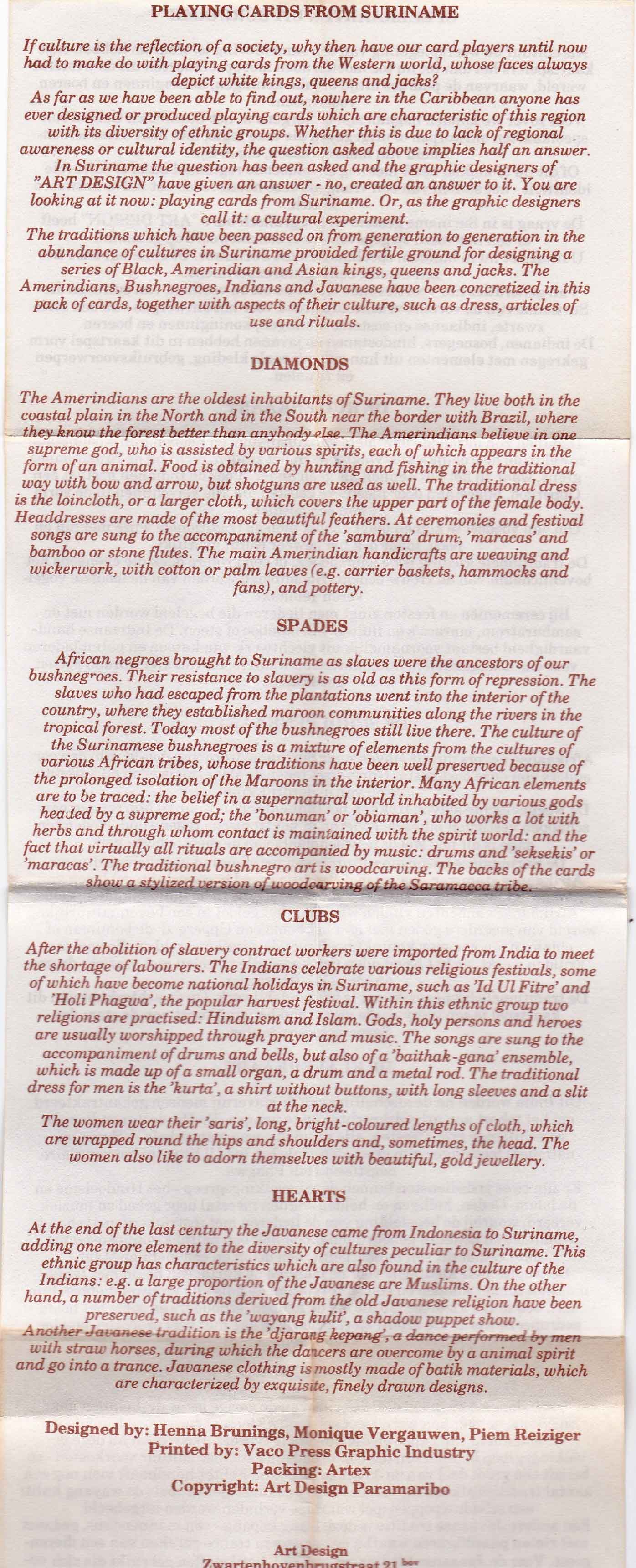
By Peter Burnett
United Kingdom • Member since July 27, 2022 • Contact
I graduated in Russian and East European Studies from Birmingham University in 1969. It was as an undergraduate in Moscow in 1968 that I stumbled upon my first 3 packs of “unusual” playing cards which fired my curiosity and thence my life-long interest. I began researching and collecting cards in the early 1970s, since when I’ve acquired over 3,330 packs of non-standard cards, mainly from North America, UK and Western Europe, and of course from Russia and the former communist countries.
Following my retirement from the Bodleian Library in Dec. 2007 I took up a new role as Head of Library Development at the International Network for the Availability of Scientific Publications (INASP) to support library development in low-income countries. This work necessitated regular training visits to many sub-Saharan African countries and also further afield, to Vietnam, Nepal and Bangladesh – all of which provided rich opportunities to further expand my playing card collection.
Since 2019 I’ve been working part-time in the Bodleian Library where I’ve been cataloguing the bequest of the late Donald Welsh, founder of the English Playing Card Society.

Related Articles
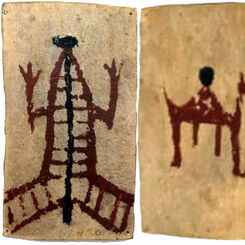
Aónikenk playing cards
Ethnographic playing cards made by members of the Aónikenk culture from Patagonia.
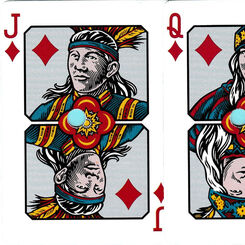
Mohegan Sun playing cards
Mohegan Sun playing cards published by Gemaco for Mohegan Sun casino.
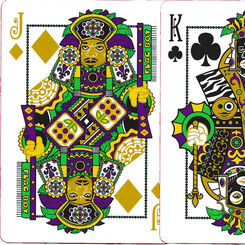
Mardi Gras playing cards
Mardi Gras playing cards illustrated by Dave Edgerly, USA, 2015

Pendleton playing cards
Pendleton playing cards inspired by indigenous American artwork, USA, 2019.

Aztec Codex playing cards
Aztec Codex playing cards illustrated by Emmanuel Valtierra, USA, ©2015.

Malam playing cards
Malam playing cards created by Michael Muldoon, USA, 2015.

Race Card
‘Race Card’ playing cards published by the Concept Card Co., New Orleans, Louisiana, USA.
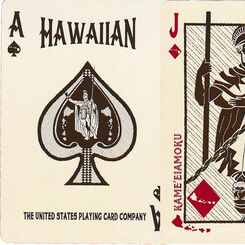
Hawaiian playing cards
Hawaiian playing cards in the style of classic Hawaiian wood carvings, USA, 2015.
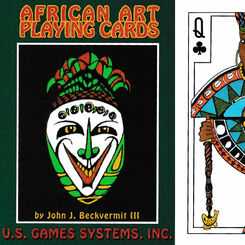
African art playing cards
African art and symbolism on playing cards designed by John J. Beckvermit III, USA, 1994.
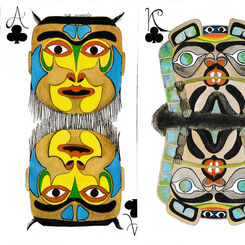
Pacific Northwest native Indian masks
Pacific Northwest native Indian masks with artwork by Margaret Parrott, USA, 1992.
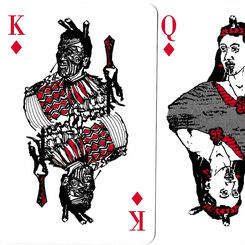
Maori playing cards
Maori playing cards from New Zealand.

Africa playing cards
According to the United Nations there are 54 countries on the continent of Africa

Drum playing cards
Drum playing cards depicting demographically diverse Africans of different ethnicities.
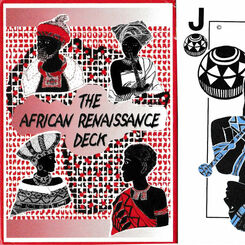
African Renaissance Deck
African Renaissance Deck published for Nkosi's Haven, South Africa, 2000.
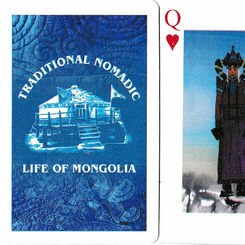
Traditional Nomadic Life of Mongolia
Playing cards depicting paintings of Traditional Nomadic Life of Mongolia.
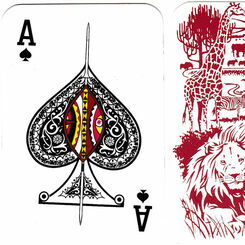
Karata playing cards
Karata playing cards produced in Nairobi, c. 1970.

Tanisa cartes à jouer
“Tanisa cartes à jouer” published by Colormad, Madagascar.
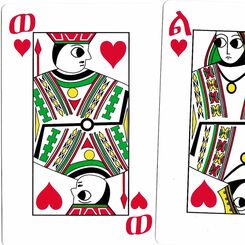
Habesha playing cards
Habesha playing cards published by “Ethiopian Reflection”

Hotel Lena
Hotel Lena playing cards published by Bichik in Yakutsk in 2001.
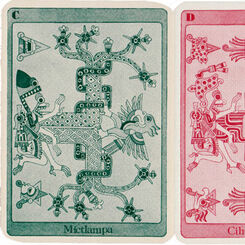
Tonalamatl
Baraja Tonalamatl Mexican Aztec playing cards based on the prehispanic Codex Borgia manuscript.
Most Popular
Our top articles from the past 60 days






















